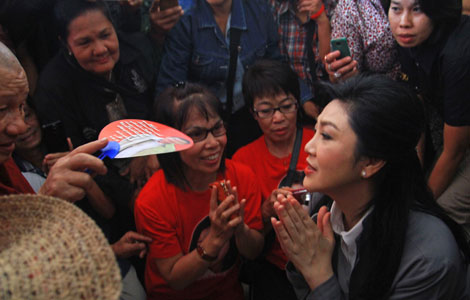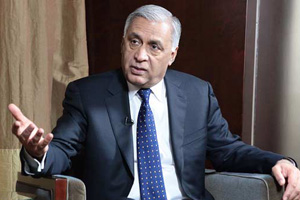Protesters in Thailand want a year for reform
Updated: 2013-12-14 07:59
By Reuters in Bangkok, Thailand (China Daily)
|
||||||||
The leader of a protest group trying to overthrow Thailand's government and scrap planned elections said on Friday the prime minister should either step down or be forced out.
Suthep Thaugsuban, a lawmaker who resigned from parliament to lead the protest, and his allies said their movement would need around a year to push through reforms. They have spoken of a volunteer police force, decentralization of power and electoral reform, though they have been noticeably short on specifics apart from that.
Prime Minister Yingluck Shinawatra has called an election for Feb 2 in an effort to end the street protests, but Suthep, knowing that allies of Yingluck's brother, ousted former premier Thaksin Shinawatra, would probably win any election, wants an unelected "people's council" to take over.
Presenting his ideas to the media, Suthep said he would meet military chiefs on Saturday to discuss his strategy, but he rejected any idea of cutting a deal with Yingluck, who heads a caretaker government now that the king has endorsed the election date.
She will hold a forum on Sunday to discuss reforms but says they can only be drawn up and implemented after the election.
"Yingluck's invitations for national reform forums are nothing new. We do not accept Yingluck's offer. We won't negotiate," Suthep told reporters.
Thailand's eight-year political conflict centers on Thaksin, a former telecommunications tycoon popular among the rural poor because of policies pursued when he was in power and carried on by governments allied to him when he was ousted.
Thaksin, who lives in self-imposed exile to escape a jail sentence for abuse of power, gained an unassailable mandate that he used to advance the interests of big companies, including his own. He has dismissed the graft charges as politically motivated.
Pitted against him are a royalist establishment that feels threatened by his rise and, in the past, the military. Some academics see him as a corrupt rights abuser, while the urban middle class resents what it sees as its taxes being spent on wasteful populist policies that amount to vote-buying.
It sees Yingluck as the puppet of Thaksin, who has been known to address Cabinet meetings by Skype.
"Instead of issuing laws that benefit the people ... they have used the parliamentary system in the wrong way to help just one group of people ... to wash the guilt of Thaksin Shinawatra," Suthep said, referring to a political amnesty bill that acted as a catalyst for the current crisis.
The "soft way out" of the impasse, he said, was for Yingluck to step down and let his council push through reforms. Failing that, the people would simply seize power, he said.
"Once we complete this in 12 to 14 months' time ... everything will return to normal," Suthep said.
The number of protesters on the street has dwindled to just a few thousand from 160,000 on Monday, when Yingluck announced the snap election, but Suthep shows no sign of giving up.
The focus is now on the meeting between the chiefs of the armed forces, Suthep and other interested parties that, according to a statement issued by the military, aims "to find a way out for Thailand".
The politically powerful army has staged or attempted 18 coups in the past 80 years, including the ousting of Thaksin in 2006, and its motives now are unclear. It has declined to get involved in the crisis so far but has offered to mediate.
|
Thai Prime Minister Yingluck Shinawatra (right) is greeted by supporters during a visit to Chiang Mai, northern Thailand on Thursday. Agence France-Presse |
- Kabul won't be bullied on security pact: Karzai
- UN team finds likely use of chemical weapons in Syria
- Downton Abbey's global charm exemplifies British soft power
- Protesters in Thailand want a year for reform
- ASEAN cautious on air zone debate
- Execution may hit Sino-DPRK projects in short term: Experts

 Two students wounded in US school shooting
Two students wounded in US school shooting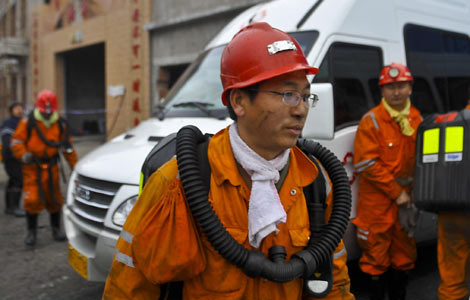
 21 died in Xinjiang coal mine explosion
21 died in Xinjiang coal mine explosion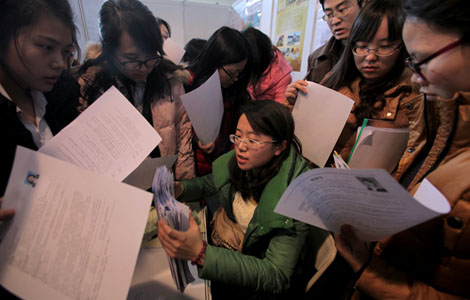
 Postgraduates get hard lessons at job fair
Postgraduates get hard lessons at job fair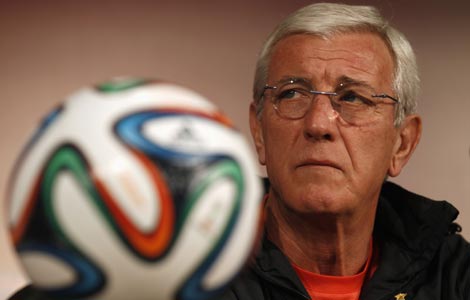
 Lippi confident with Guangzhou's opener
Lippi confident with Guangzhou's opener
 Havens of hope open their arms to forsaken infants
Havens of hope open their arms to forsaken infants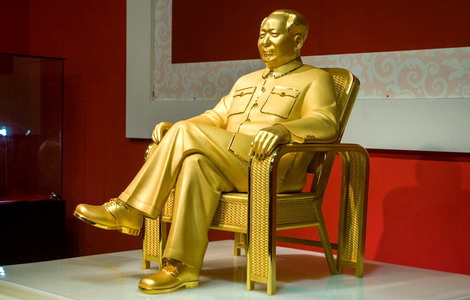
 Golden statue to mark anniversary of Mao's birth
Golden statue to mark anniversary of Mao's birth
 New Sanlu seeks to shake off image tainted by scandal
New Sanlu seeks to shake off image tainted by scandal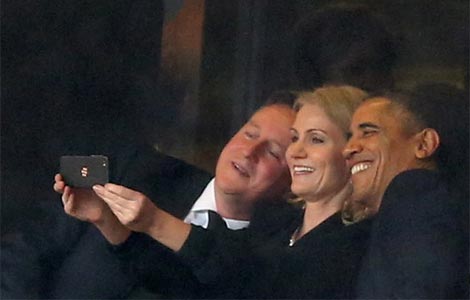
 Selfies of the year 2013
Selfies of the year 2013
Most Viewed
Editor's Picks

|

|

|

|

|

|
Today's Top News
US paves way for in-flight cell phones
ASEAN cautious on air zone debate
Top leaders vow to steer steady path
BYD dismisses 'inaccurate and misleading' reports
Execution may hit co-op projects
Two wounded in US school shooting
Gift ban applies to festivals: official
UPS to deliver more parcels in China
US Weekly

|

|
